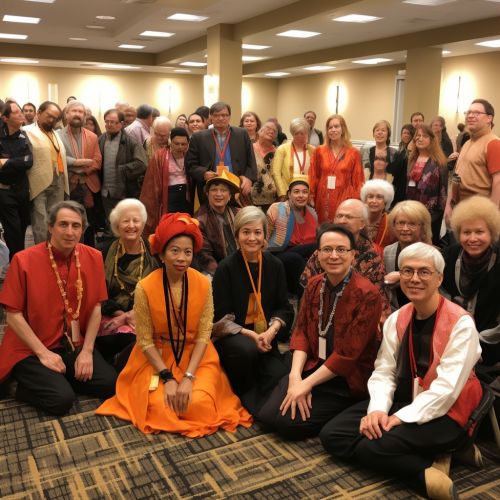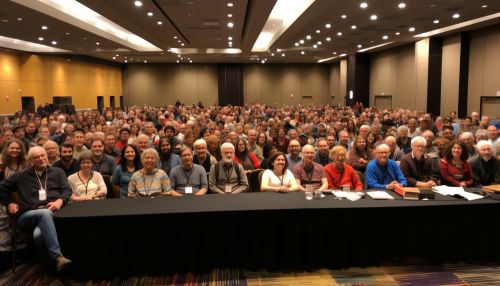Modern Language Association
Overview
The Modern Language Association (MLA) is a professional organization for scholars of language and literature. Established in 1883, the MLA provides opportunities for its members to share their scholarly findings and teaching experiences with colleagues and to discuss trends in the academy. The MLA is known for its publication of research, development of curriculum, fostering of debates about the literatures and languages that it covers, and the promotion of the indispensable role of the humanities in higher education.
History
The Modern Language Association was founded in 1883 by a group of professors and scholars in the United States. The organization's initial aim was to establish common standards for teaching, curating, and interpreting literary texts. Over the years, the MLA has grown in size and scope, now encompassing a wide range of fields related to language and literature, including comparative literature, cultural studies, and media studies.


Publications
The MLA is renowned for its publications, which include the MLA Handbook, the MLA Style Manual, and two scholarly journals: PMLA (Publications of the Modern Language Association) and Profession. These publications are essential resources for students and scholars in the humanities, particularly those studying languages and literatures.
MLA Handbook
The MLA Handbook is a guide for writers of research papers, theses, and dissertations in many humanities disciplines. The handbook provides guidelines for citing sources, formatting papers, and using the English language in writing. The MLA Handbook is now in its 8th edition, reflecting the association's commitment to keeping its standards up to date with evolving research practices.
MLA Style Manual
The MLA Style Manual is another significant publication of the association. It provides guidance for authors, editors, and publishers in the humanities. The style manual includes information on manuscript preparation and publication, citation of sources, and the use of English in writing. The MLA Style Manual is considered the definitive guide to MLA style, and it is widely used in academic and professional writing.
Journals
The MLA publishes two scholarly journals: PMLA and Profession. PMLA is one of the leading journals in the humanities, publishing research on languages and literatures. Profession, on the other hand, focuses on issues of professional concern to teachers and scholars in the humanities.
Conventions and Meetings
The MLA holds an annual convention, which is the largest and most important of its kind in the humanities. The convention is a venue for members to present their research, participate in seminars and workshops, and network with other professionals in their field. The MLA convention also features job interviews for positions in academia, making it a crucial event for early-career scholars and job seekers.


Advocacy
The MLA is actively involved in advocacy work, promoting the value of studying language and literature and defending the rights of humanities scholars. The association advocates for the humanities at the local, state, and federal levels, arguing for increased funding for humanities research and education. The MLA also advocates for academic freedom and the rights of scholars and teachers in the humanities.
Membership
Membership in the MLA is open to anyone interested in language and literature, regardless of occupation, nationality, or other factors. Members receive a variety of benefits, including access to MLA publications, discounted registration for the annual convention, and opportunities to participate in the association's advocacy efforts.
See Also
- American Psychological Association - Chicago Manual of Style - Council of Science Editors
